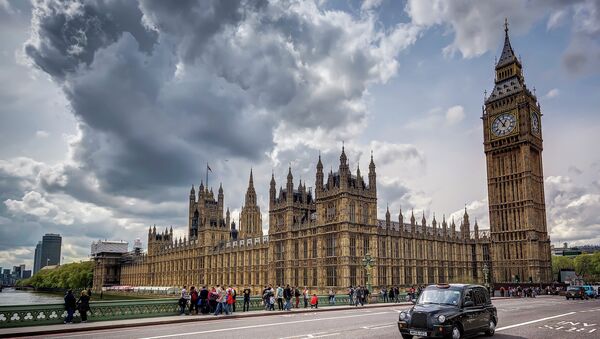MOSCOW (Sputnik) – Britain’s new draft bill to institutionalize surveillance, giving police and intelligence services access to browsing history and personal communications, provides the "strongest protections" and complies with "strongest authorization," UK Home Secretary Theresa May said Wednesday.
"This will be one of the strongest authorization regimes anywhere in the world," May said in introducing the Investigatory Powers Bill to the Parliament.
May said the "strongest protections and safeguards anywhere in the democratic world" stop short of three key areas of concern.
The draft Investigatory Powers Bill will not permit capturing and retaining third-party traffic from overseas providers, will not subject international providers to "domestic retention obligations" and will not ban encryption used by smartphone applications, she said.
The current plan makes it a legal requirement for communications companies to retain customer web browsing history for 12 months. UK telecommunication companies and Internet service providers will be paid by the government to log customer emails, Internet use and other correspondence, for access by security officials, according to the bill.
Earlier this month, British media cited sources saying the bill would allow intelligence agencies to install software, take photographs of targets and record conversations after obtaining warrants.
Police have been lobbying the government to grant it expanded surveillance powers, arguing that the scale of online digital-based activities make traditional methods of surveillance and investigation less effective.



